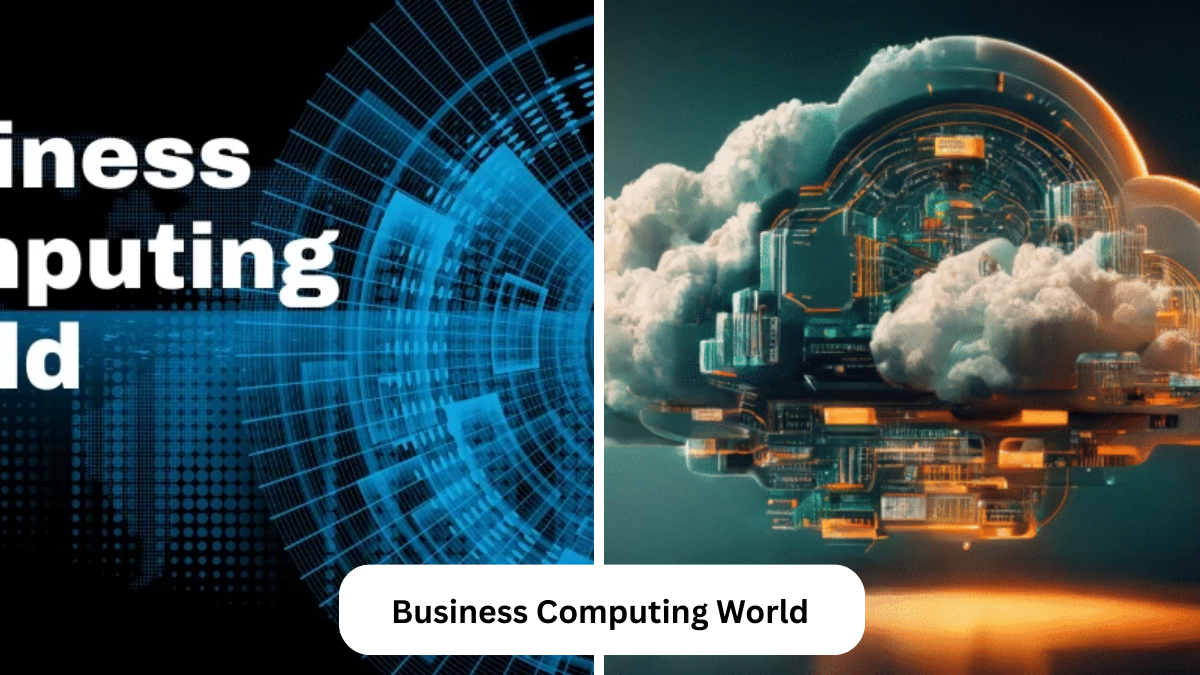The term Business Computing World embodies the transformative role of technology in shaping modern enterprises. In today’s environment, where competitiveness relies heavily on digital agility, computing has evolved from being a supporting function to becoming the very backbone of organizations. Businesses no longer treat computing as an auxiliary service; instead, it forms the strategic foundation that drives decision-making, innovation, communication, and customer engagement.
As industries become increasingly reliant on digital solutions, understanding the significance of the business computing world is essential. From cloud platforms and artificial intelligence to cybersecurity and data analytics, this domain represents both the challenges and the opportunities of conducting business in the 21st century.
The Evolution of Business Computing
Business computing has traveled a long journey from its early days. Initially, enterprises used computers mainly for basic accounting and record-keeping tasks. Large mainframes dominated the mid-20th century, serving only massive organizations that could afford them.
With the advent of personal computers in the 1980s, computing became accessible to smaller businesses, bringing spreadsheets, databases, and word processing to office desks. The internet revolution of the 1990s expanded business horizons, enabling companies to create websites, communicate globally through email, and explore e-commerce.
Fast forward to the 21st century, and business computing is characterized by cloud services, mobile applications, and advanced analytics. The business computing world has become synonymous with innovation, where tools are designed not just to process data but to empower strategic growth.
Cloud Computing and Its Impact
One of the most defining elements of the modern business computing world is cloud technology. Cloud computing allows businesses to store, process, and access data through online servers rather than on local infrastructure. This shift has enabled organizations to cut costs, scale quickly, and operate with unprecedented flexibility.
Companies no longer need to invest heavily in physical servers or maintenance teams. Instead, they rely on cloud providers for infrastructure, security, and updates. This has leveled the playing field, giving small businesses access to technologies that were once reserved for large corporations. Cloud services also facilitate remote work, a trend that has accelerated in recent years and continues to redefine how enterprises function.
Data Analytics as a Business Driver
Another key force shaping the business computing world is data analytics. Modern businesses generate enormous amounts of information, from customer behaviors and sales trends to supply chain logistics. The ability to capture, analyze, and interpret this data is now central to competitive advantage.
Data-driven insights allow organizations to identify patterns, forecast demand, personalize marketing campaigns, and improve decision-making at every level. Predictive analytics, in particular, has become a cornerstone for anticipating market changes and preparing for future challenges.
In this context, computing is not just about storing data but about unlocking its potential. Businesses that effectively harness data analytics can make faster, smarter, and more accurate decisions, placing them at the forefront of their industries.
Artificial Intelligence and Automation
Artificial intelligence (AI) has become one of the most talked-about elements of the business computing world. From chatbots handling customer inquiries to advanced machine learning algorithms predicting market trends, AI is reshaping how enterprises operate.
Automation driven by AI has transformed repetitive tasks, reducing human error and freeing employees to focus on higher-value activities. For example, in finance, AI automates invoice processing and fraud detection. In retail, algorithms analyze consumer preferences to recommend products. Across industries, AI enables efficiency and innovation at scales never before possible.
The integration of AI into business computing also raises ethical considerations, such as the impact on jobs and the importance of transparent decision-making. Nevertheless, its role as a transformative force in modern enterprises is undeniable.
Cybersecurity in the Business Computing World
As businesses become increasingly digital, cybersecurity has emerged as a critical concern. The business computing world is not only about opportunities but also about risks. Cyberattacks, data breaches, and ransomware have become common threats that can cripple organizations financially and reputationally.
Enterprises invest heavily in firewalls, encryption, and cybersecurity training to protect sensitive data. Regulatory frameworks around the world now require stricter compliance to safeguard personal and corporate information. Cybersecurity has evolved from being a purely technical issue to a board-level priority.
In many ways, trust has become a currency in the digital world. Customers and partners expect organizations to protect their information, making cybersecurity an essential pillar of business computing.
The Rise of Remote Work and Collaboration Tools
The global shift toward remote work highlighted the importance of collaborative technologies in the business computing world. Tools such as video conferencing, cloud-based document sharing, and real-time project management platforms have allowed teams to stay connected regardless of location.
This transition demonstrated the resilience and adaptability of modern computing. Businesses that had already invested in digital infrastructure transitioned smoothly, while others quickly adopted these tools to survive. Remote work has now become a permanent feature of the business landscape, showcasing how computing enables flexibility and inclusivity.
Small Businesses and Global Opportunities
While large corporations often dominate conversations about technology, the business computing world has also empowered small and medium-sized enterprises (SMEs). Affordable software, cloud services, and e-commerce platforms have allowed smaller businesses to compete on a global scale.
For entrepreneurs, digital tools reduce barriers to entry, enabling them to reach customers worldwide with minimal resources. From automated accounting systems to digital marketing platforms, small businesses can operate efficiently and expand rapidly in ways that were unimaginable decades ago.
This democratization of technology underscores how computing drives economic growth across all sectors of society.
Sustainability and Green Computing
The conversation about the business computing world increasingly includes sustainability. With rising awareness of climate change, companies are exploring ways to reduce their digital carbon footprint. Green computing emphasizes energy-efficient servers, sustainable data centers, and responsible e-waste management.
Cloud providers and tech companies are investing in renewable energy sources to power their operations, aligning business computing with environmental goals. Sustainability is no longer just a corporate social responsibility measure; it has become a competitive advantage, influencing consumer choices and investor decisions.
Future Trends in the Business Computing World
Looking ahead, the business computing world will continue to evolve in exciting ways. Emerging technologies such as quantum computing promise to solve complex problems far beyond the capabilities of today’s machines. Blockchain is introducing new models of trust and transparency in finance, supply chains, and digital identity.
Moreover, the integration of augmented reality (AR) and virtual reality (VR) into business environments will transform customer engagement and employee training. As technology advances, businesses that remain adaptable and forward-thinking will continue to thrive.
Conclusion
The business computing world is not just about technology—it is about transformation. From cloud services and data analytics to AI, cybersecurity, and sustainability, computing has redefined how businesses operate, compete, and grow. It has democratized access to global opportunities, empowered small enterprises, and reshaped corporate strategies at every level.
In an era where technology evolves daily, businesses that embrace the potential of computing are not just surviving—they are thriving. The business computing world remains a dynamic, ever-changing landscape that continues to influence the future of work, innovation, and human progress.
FAQs About Business Computing World
What does the term “business computing world” mean?
It refers to the use of computing technologies in business environments, encompassing everything from cloud platforms and data analytics to AI, cybersecurity, and collaboration tools.
How has cloud computing changed business operations?
Cloud computing has reduced costs, increased flexibility, and enabled remote work by allowing businesses to store and access data online rather than relying on local servers.
Why is cybersecurity so important in the business computing world?
As businesses go digital, they face risks such as cyberattacks and data breaches. Cybersecurity ensures the protection of sensitive information and maintains customer trust.
How do small businesses benefit from modern business computing?
Affordable digital tools allow small businesses to compete globally, streamline operations, and engage with customers more effectively.
What future trends will shape the business computing world?
Quantum computing, blockchain, AR/VR, and sustainable computing practices are expected to play major roles in the future of business technology.




